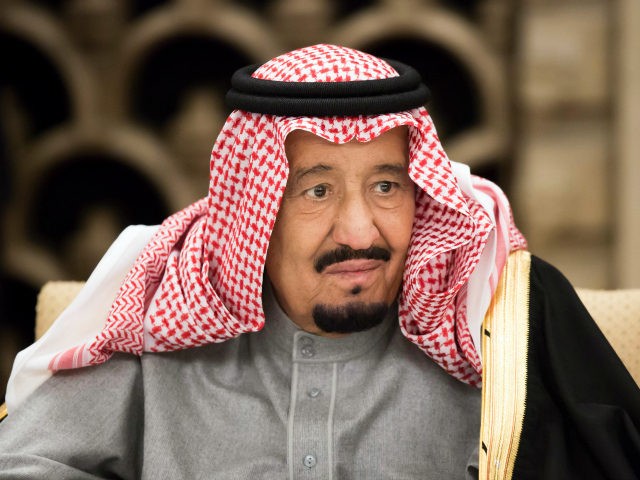Saudi Arabia’s King Salman, at the start of two emergency summits in the holy city of Mecca on Thursday, intensified rhetoric against regional foe Iran, urging Arab leaders to combat Tehran’s “criminal acts” in the Middle East and beyond.
“The absence of a firm and dissuasive response to Iran’s acts of sabotage in the region has encouraged it to continue and strengthen them in the way we see today,” the Saudi king declared at the start of the back-to-back emergency anti-Iran summits in Mecca on Friday, the Agence France-Presse (AFP) news agency reported.
“Its recent criminal acts … require that all of us work seriously to preserve the security and achievements of GCC (Gulf Cooperation Council),” the king added, referring to the recent attacks on Gulf oil installations allegedly by Iran, an accusation Tehran denies.
The Sunni kingdom also warned that Iran’s nuclear and ballistic missile activities pose a significant menace to regional and global security, Al Arabiya reported Friday, adding, “He said Tehran’s actions threatened international maritime trade and global oil supplies in a “glaring violation of UN treaties,” following attacks this month on oil tankers off the United Arab Emirates and on oil pumping stations in the Kingdom.”
“We will work together to face all challenges… The Iranian regime has been interfering in other countries’ affairs, developing their nuclear programs and threatening international navigation,” King Salman declared.
The powerful Sunni King urged the international community to use “all means” at its disposal to contain Shiite powerhouse Iran.
Shiite-majority Iraq, home to tens of thousands of Iranian-backed militiamen sanctioned by Baghdad, found itself caught in the middle of its two allies, the United States and Iran, ultimately opposing a final statement by Arab countries chastising Tehran’s behavior in the region.
Iraq has offered to mediate between the United States and U.S.-designated state-sponsor of terrorism Iran.
Saudi Arabia hosted the summits this week, expected to be followed by a third meeting of Arab head of states on June 1 intended to mobilize efforts to isolate Iran.
On Friday, AFP reported:
Saudi Arabia’s King Salman on May 31 ratcheted up the rhetoric against arch-nemesis Iran, calling on Arab states to confront its “criminal” actions after attacks on oil installations sparked fears of a regional conflagration.
The king’s remarks came at the start of two back-to-back emergency summits in the holy city of Mecca, which drew near-unanimous support for the Sunni kingdom from Gulf and Arab states — with the exception of Iraq.
This week, Saudi Arabia convened its summits in Mecca a day after U.S. President Donald Trump’s National Security adviser, John Bolton, said Iran is almost certainly linked to this month’s sabotage of four ships, including two Saudi oil tanker, off the United Arab Emirate coast.
Iran has denied the accusations.
The Saudis kickstarted the first of three summits on Thursday “with the aim of addressing Iranian threats and tensions following the sabotage of Saudi oil tankers off the UAE coast, a rocket strike near the US Embassy in Baghdad, and a coordinated drone attack on Saudi Arabia by Yemen’s Iran-allied Houthi militia,” Al Arabiya reported.
In recent days, Iranian-allied Shiite Houthi rebels in Yemen have escalated drone attacks against Saudi Arabia, resulting in one of them temporary shutting down a major oil pipeline.
For years, Riyadh, Washington, and Tel Aviv have all condemned Tehran for fomenting war in the Middle East and beyond with its ruthless Islamic Revolutionary Guard Corps (IRGC), which the United States deems a terrorist organization.
Iran also relies on other violent affiliates — namely the Hezbollah narco-terrorist group that U.S. and Latin American authorities have linked to money laundering and drug trafficking.
U.S. President Trump recently confirmed U.S. plans to deploy an additional 1,500 troops to the Middle East to restrain Iran, bringing the number in the region to nearly 23,500 in addition to “65,622 American military and civilian personnel operating in support of broader contingency operations,” the Congressional Research Service (CRS) reported in mid-April.
U.S. Central Command (CENTCOM) — charged with American military activity mainly in the Middle East and Afghanistan — “has between 60,000 and 80,000 troops deployed in the area,” AFP recently reported.

COMMENTS
Please let us know if you're having issues with commenting.